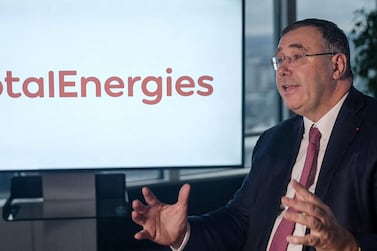The last couple of weeks have brought repeated bad news and corporate defeats for big western oil corporations. The sector is out of fashion for investors, perhaps permanently, and faces complete transformation if it is to survive. But, on closer examination, these events may not be so bad for big petroleum companies, nor so good for environmentalists.
Two weeks ago, the International Energy Agency issued its key report on reaching net-zero carbon by 2050. It said that no new oil and gasfields were needed to meet remaining demand and that world oil production would decline by 75 per cent and gas by 55 per cent by mid-century.
Shareholders in Chevron and ConocoPhillips defied the companies’ boards to vote in favour of targets to reduce greenhouse gas emissions from the products they sell.
On Wednesday, Shell lost a Dutch court case ordering it to cut carbon dioxide emissions from its sales by 45 per cent by 2030 to keep it in line with the Paris Agreement. Most dramatically, at least two ExxonMobil board members were replaced by pro-climate nominees put forward by activist hedge fund Engine No 1.
The companies are under pressure because of the growing reality of strong climate action and competitive low-carbon technology. But shareholders would have been much more forgiving if their financial results over the past decade were not so miserable.
According to John Kemp from Reuters, the S&P has returned 14.6 per cent annually since 2010 while inflation-adjusted returns from the main oil companies since then are negative for Shell and BP and about 1 per cent a year for ExxonMobil and Total. Even the best performer, Chevron, has managed only 5.1 per cent a year after inflation.
The poor performance is not due to climate policy or energy transition. Oil demand grew until the pandemic while growth in gas was even stronger and prices of both oil and gas averaged well above long-term history.
Instead, the big oil companies' problems have been poorly timed and ill-conceived acquisitions, notably ExxonMobil’s purchase of unconventional gas producer XTO for $41 billion in 2009, overspending, inept project management and portfolio selection, and the pressure to compete with US shale rivals who were lavishly funded and even less profitable.
For at least two decades, oil companies have struggled with a conundrum: back environmental targets that are too aggressive and face the risk of abandonment by shareholders, with management replaced by more conservative figures.
Now that logic is reversed. Five renewable “super majors” – Enel of Italy, Iberdrola of Spain, Orsted of Denmark, Engie of France and NextEra from the US – have a total market capitalisation of $432bn. That is more than half that of the five traditional big oil companies – ExxonMobil, Chevron, Shell, Total and BP – and the gap is closing.
At least the recent shareholder votes have the virtue of clarity. Instead of continuing to support climate change denialism, for which ExxonMobil has faced litigation, all listed petroleum companies need a net-zero carbon commitment and a credible climate and energy transition plan.
If they have fared so poorly at managing their legacy business, they face a stiff task in convincing investors they are the right people to manage wind, solar or batteries. However, they are the natural leaders of hydrocarbon-adjacent projects such as biofuels, hydrogen, carbon capture and storage and energy trading.
So much for the companies themselves. What of the consequences for the environment?
The five big oil companies collectively produce less than 15 per cent of global crude oil. The eight leading national oil companies – Saudi Aramco, Rosneft of Russia, Iraq’s Ministry of Oil, the National Iranian Oil Company, Kuwait Oil Company, PetroChina, Petrobras of Brazil, Adnoc and Pemex of Mexico – account for 38 per cent. Cases such as Shell's will either force the company to move to a new jurisdiction or sell assets to non-European buyers.
Add the remaining Eurasian, Latin American, Middle Eastern and African NOCs, other Chinese state companies, the government-owned or influenced Russian companies and private companies impervious to public shareholders and it is clear that actions aimed at constraining supply from listed western companies will have a limited effect on total volumes produced.
This will be felt at the margins. Insufficient investment in competitive worldwide supply will mean a growing share for NOCs and, especially, the Middle East. This is promising for the plans of Adnoc, Iraq and others to expand capacity. The IEA report predicts this very outcome. In turn, that indicates greater pricing power for the Opec+ alliance, if it endures.
The listed oil companies, unpopular household names, have been an easy target for environmental campaigns. So far, that has blocked various pipelines but not done much to stop oil and gas exploration and development, outside a few marginal areas such as Denmark, France and New York state. President Joe Biden’s agenda will increasingly constrain US production, especially if he wins a second term.
While high prices would appear to be good news for oil producers and companies, they would be bad for everyone. Popular opinion may turn against the decarbonisation agenda in the short term, especially in the US, at a time when we cannot afford another four wasted years. Or we may see a hastier and more wasteful rush to non-hydrocarbon technology and amnesia over the IEA’s other goals – energy security and universal access.
The views of climate campaigners are increasingly becoming mainstream among investors, as the success of Engine No 1 shows. But they must ensure low-carbon alternatives come along as quickly as oil and gas output falls. Otherwise, the next decade of energy transition will be much messier than boardroom battles and courtroom contretemps.
Robin Mills is chief executive of Qamar Energy and author of The Myth of the Oil Crisis







